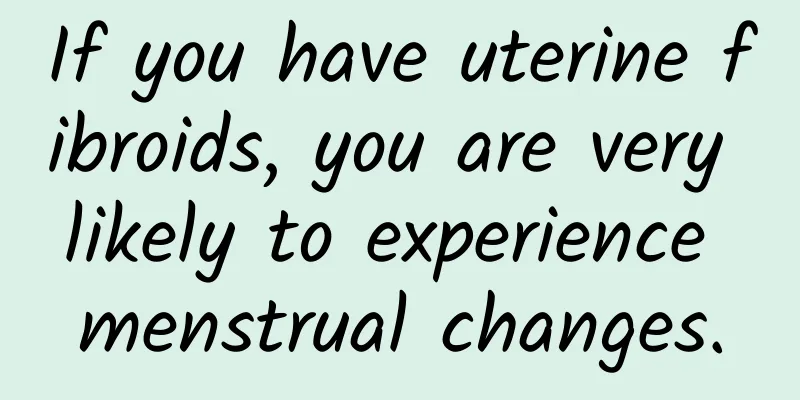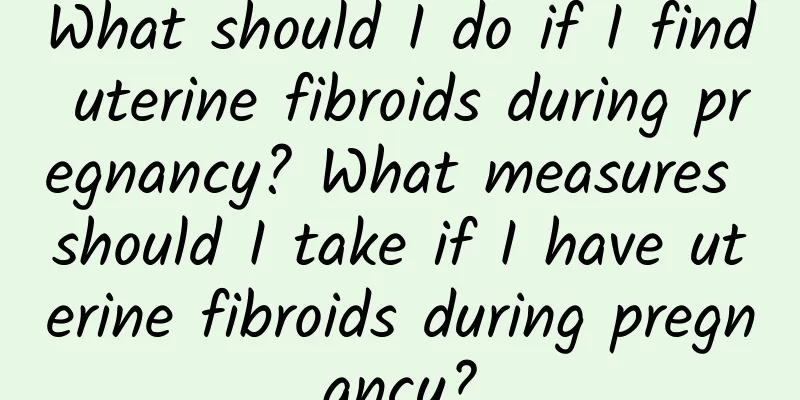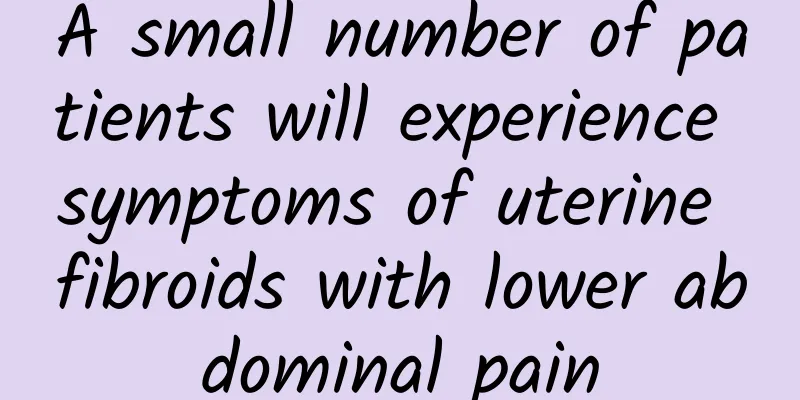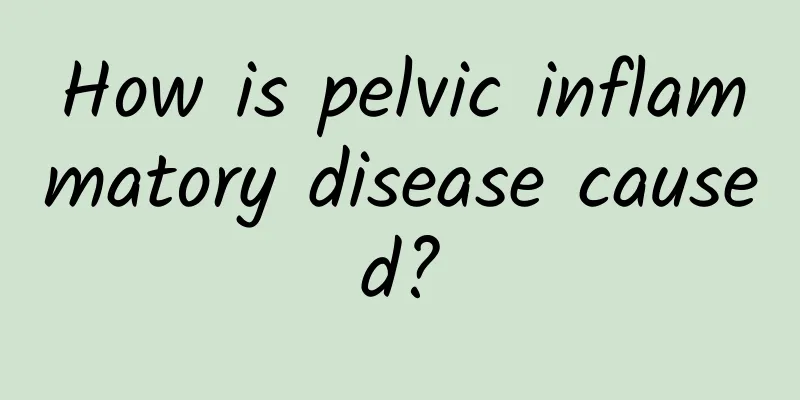If you have uterine fibroids, you are very likely to experience menstrual changes.

|
If you have uterine fibroids, you are very likely to experience menstrual changes. If you also have an increase in leucorrhea, you may consider whether you have uterine fibroids. Do you know what the symptoms of uterine fibroids are? Let the authoritative experts explain it to us. I hope that reading this article will be helpful to you. The main symptoms of uterine fibroids are as follows: 1. Menstrual changes: The most common symptom of uterine fibroids, manifested as shortened menstrual cycle, increased menstrual flow, prolonged menstrual period, irregular vaginal bleeding, etc. 2. Abdominal mass: Symptoms of uterine fibroids include a swollen abdomen, a mass felt in the lower abdomen, and a feeling of falling. 3. Increased vaginal discharge: Increased vaginal discharge, sometimes with a large amount of purulent and bloody discharge and necrotic tissue discharge with a foul odor, is also a symptom of uterine fibroids. 4. Pain: Symptoms of uterine fibroids generally include no abdominal pain, but often lower abdominal distension, back pain, etc. When the subserosal fibroid pedicle is twisted, acute abdominal pain may occur. When the fibroid turns red, the abdominal pain is severe and accompanied by fever. 5. Compression symptoms: When the fibroid grows forward or backward, it can compress the bladder, urethra or rectum, causing frequent urination, dysuria, urinary retention or constipation. When the fibroid grows to both sides, it forms a broad ligament fibroid, which compresses the ureter and can cause hydroureteral or renal pelvis; if it compresses the pelvic blood vessels and lymphatic vessels, it can cause lower limb edema. 6. Infertility: Fibroids compress the fallopian tubes, causing them to twist, or deform the uterine cavity, thus preventing the fertilized egg from implanting and leading to infertility. 7. Secondary anemia: If the patient has excessive menstruation for a long time, it may lead to secondary anemia, with symptoms of uterine fibroids such as general fatigue, pale complexion, shortness of breath, and palpitations. The above is the explanation given by experts on the symptoms of uterine fibroids. I hope it can help you answer your questions. Experts remind everyone that if you suffer from any disease in your daily life, you must not delay treatment. This is very dangerous. Some diseases will worsen or cause other diseases. |
<<: Sexual dysfunction may lead to uterine fibroids
>>: 6 small folk remedies that are effective in treating constipation
Recommend
Improve metabolism and reduce the burden on the liver first. 2. Dietary focus to help the body start repairing power
Heal your liver The liver is like a superstar. A ...
What are the main early symptoms of ectopic pregnancy?
Ectopic pregnancy mainly refers to ectopic pregna...
Is menstruation contagious? Actually, this is related to menstrual synchronization.
In daily life, we often see that when someone aro...
Can patients with congenital absence of vagina eat soy products?
Congenital absence of vagina is extremely difficu...
Rest is the key to bacterial vaginosis care
Bacterial vaginosis is not a common disease in yo...
Women should take good care of the prevention of cervical hypertrophy
Cervical hypertrophy is a common disease in life....
What are the inducing factors of uterine fibroids? Can poor work and rest lead to uterine fibroids?
This disease usually manifests itself as abdomina...
Can endometriosis be detected by B-ultrasound?
Endometriosis is a gynecological disease with a h...
What to do if you have cervicitis? Four tricks to make cervicitis invisible
Cervicitis is a common gynecological disease. To ...
Beware! Low back pain is a warning sign of pelvic inflammatory disease
What are the symptoms of pelvic inflammatory dise...
What are the health care measures for cervical hypertrophy
Cervical hypertrophy is a type of chronic cervici...
What are the symptoms of a ruptured chocolate cyst?
What are the symptoms of a ruptured chocolate cys...
How harmful is ectopic pregnancy to women?
How harmful is ectopic pregnancy to women? Whethe...
How to treat mild white lesions of the vulva
Vulvar white lesions include vulvar white lesions...
How is adenomyosis diagnosed?
The cervix of patients with adenomyosis is rarely...









